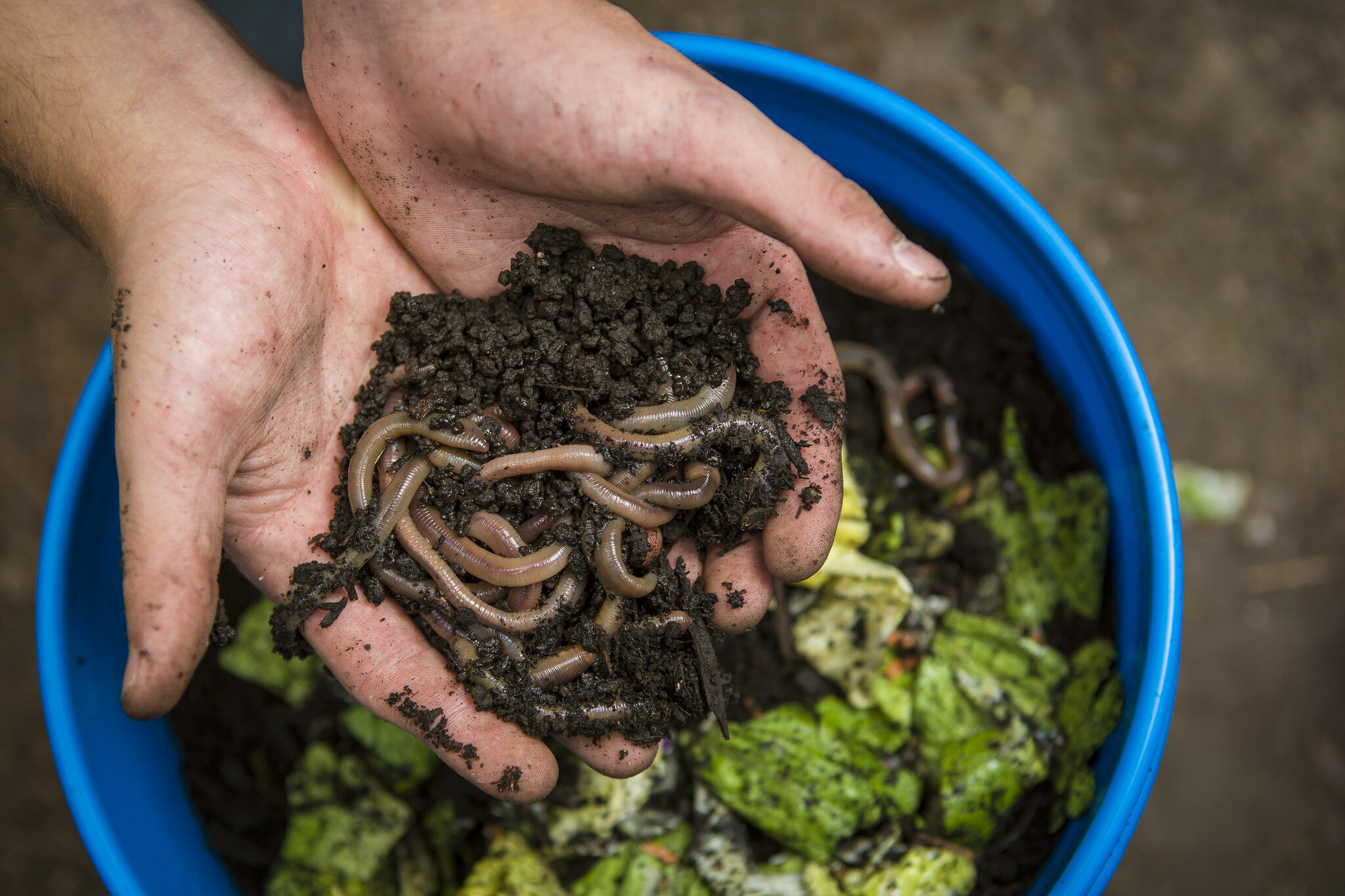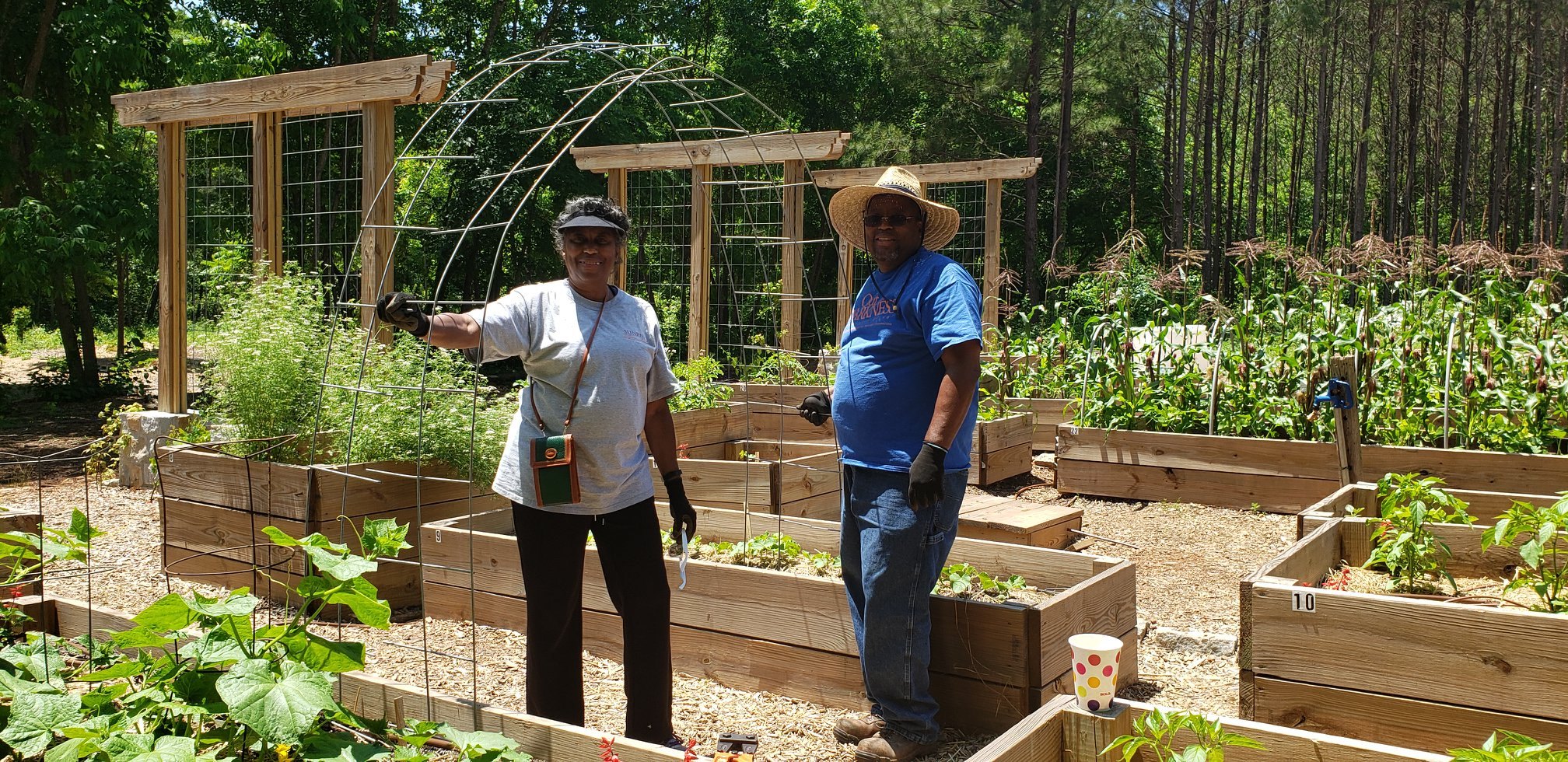FOOD MATTERS > COMPOSTING
Composting
Wasting edible food not only affects our pocketbooks but also effects the environment. When food rots in landfills, in the absence of oxygen, it creates methane gas -- a greenhouse gas 20 times more potent and 80 times more successful, at trapping heat on the planet, than carbon dioxide.
Though we’ve given you information about how to prevent wasting edible food, we know sometimes it happens and sometimes food waste is of the inedible kind, like corn cobs or banana and potato peels or apple cores, but rather than tossing these out into the garbage, destined for the landfill, compost them!
Composting is the process of organic wastes (food, yard trimmings, paper, etc.) naturally decomposing with air, water, and the heat that comes from little working microorganisms in the pile. It is the recycling of the natural world. When it is done, finished compost is a rich spongey soil looking like material and it is the best-known fertilizer for plants.
While store-bought fertilizers contain synthetic chemicals and are high in salts that strip the soil of nutrients, compost, when added to the soil, adds back nutrients from organic matter, reduces the need for pesticides, and increases the soil’s water holding capabilities. It also saves money on potting soil and reduces trips to the retail gardening center. Look at that! Gold found in what was once considered to be trash.
Backyard Composting
Perfect if you have outdoor space
Can take a wide range of food scrap types (except meat and dairy)
Vermicomposting
Ideal for apartment dwellers since worms need a certain climate/temperature, will not always thrive outdoors
Can only process fruit and veggie food scraps
Bokashi
Good for meat and dairy
Fast and requires no “turning”
Also great for apartment dwellers
Community Composting
Locations coming soon in Atlanta!
Food scraps may be processed for you when you drop-off and/or you will have to rotate/volunteer
Often, finished compost goes into a garden onsite to produce more community food
Want to learn more?
Take a Master Composter class offered through the University of Georgia Extension in your county.
Want to start your own community compost site?
Here you will find some best management practices to get started.
Back: Recovery






